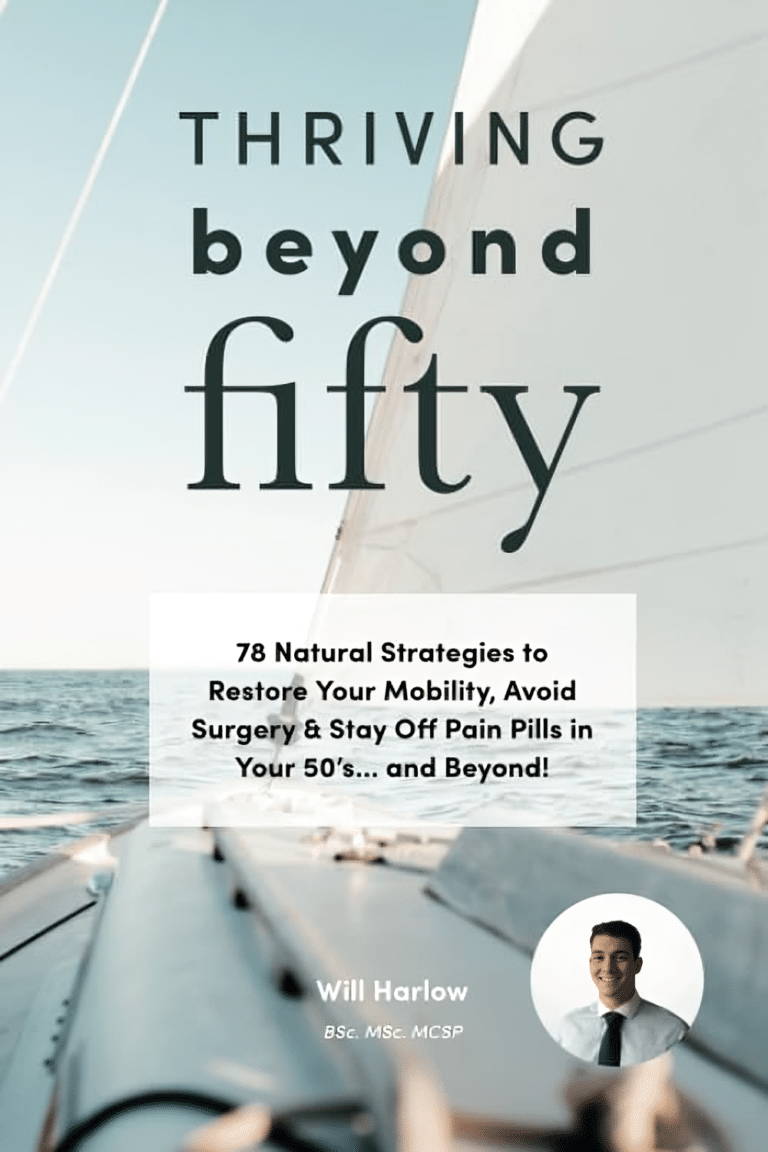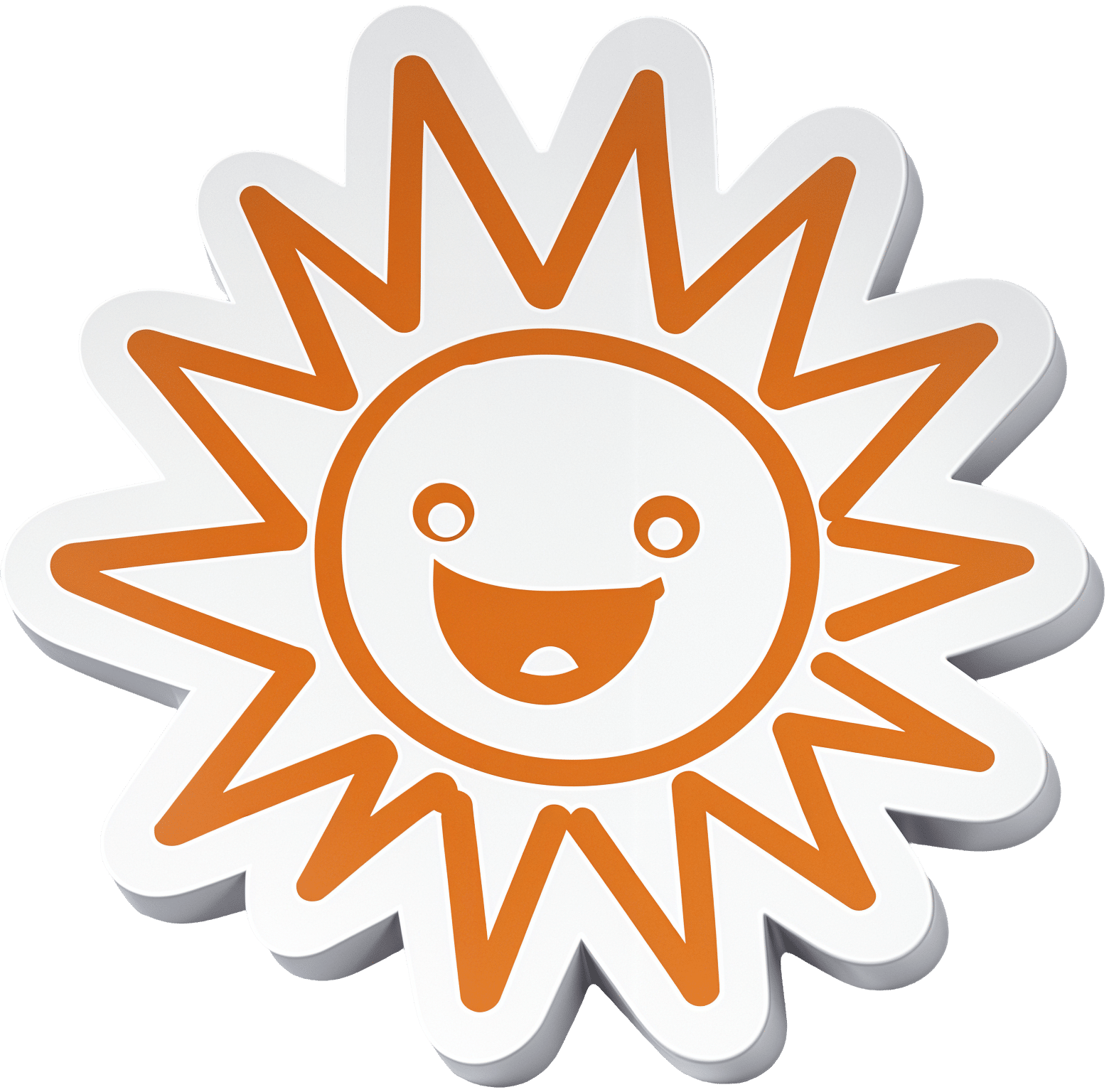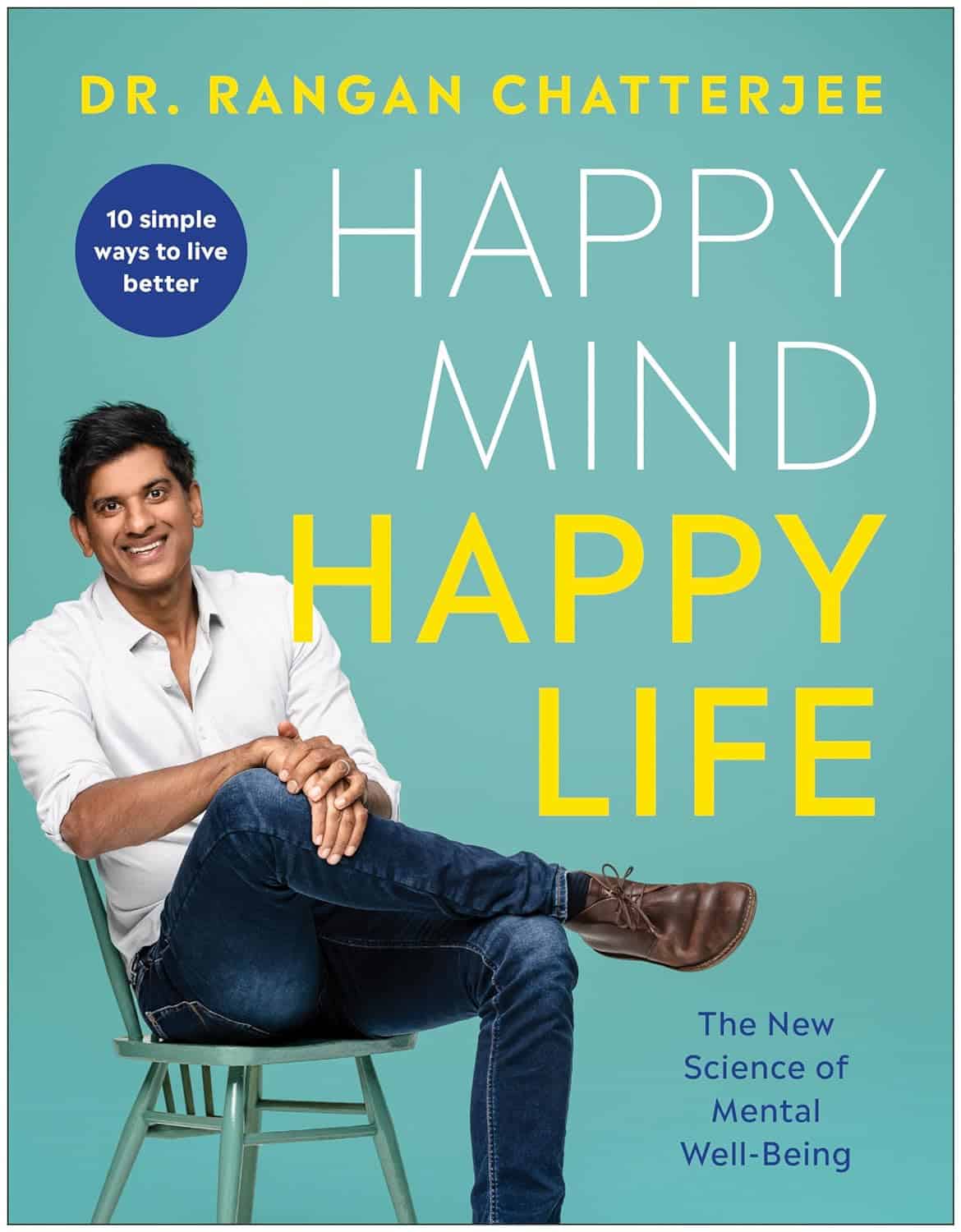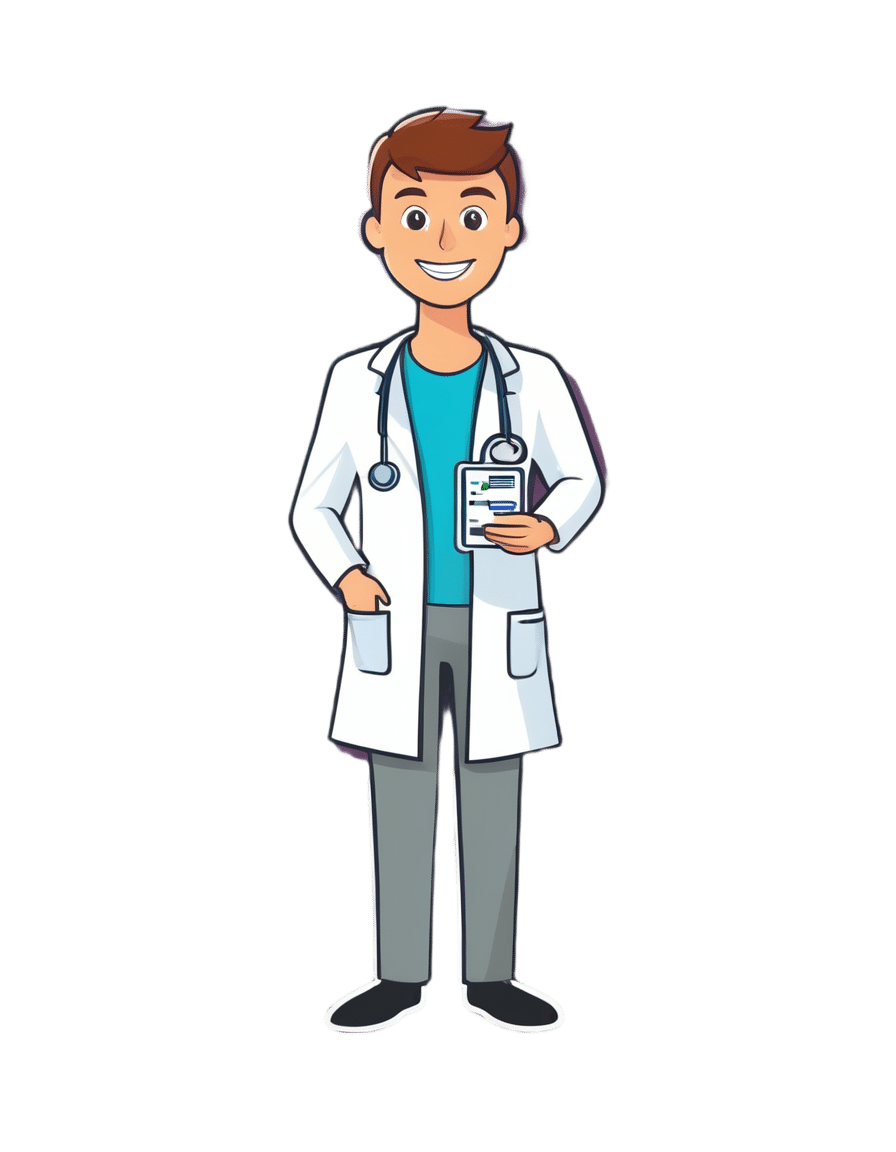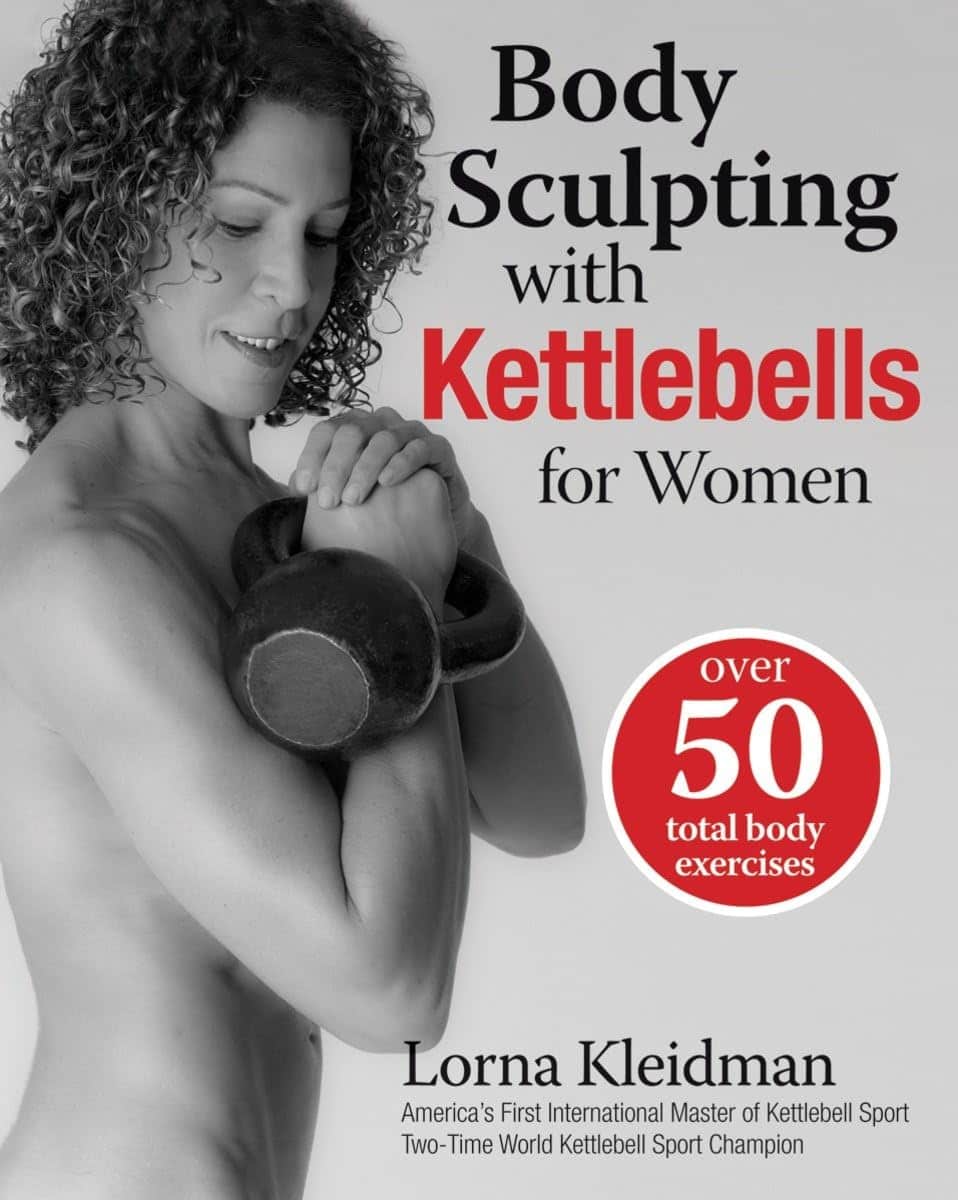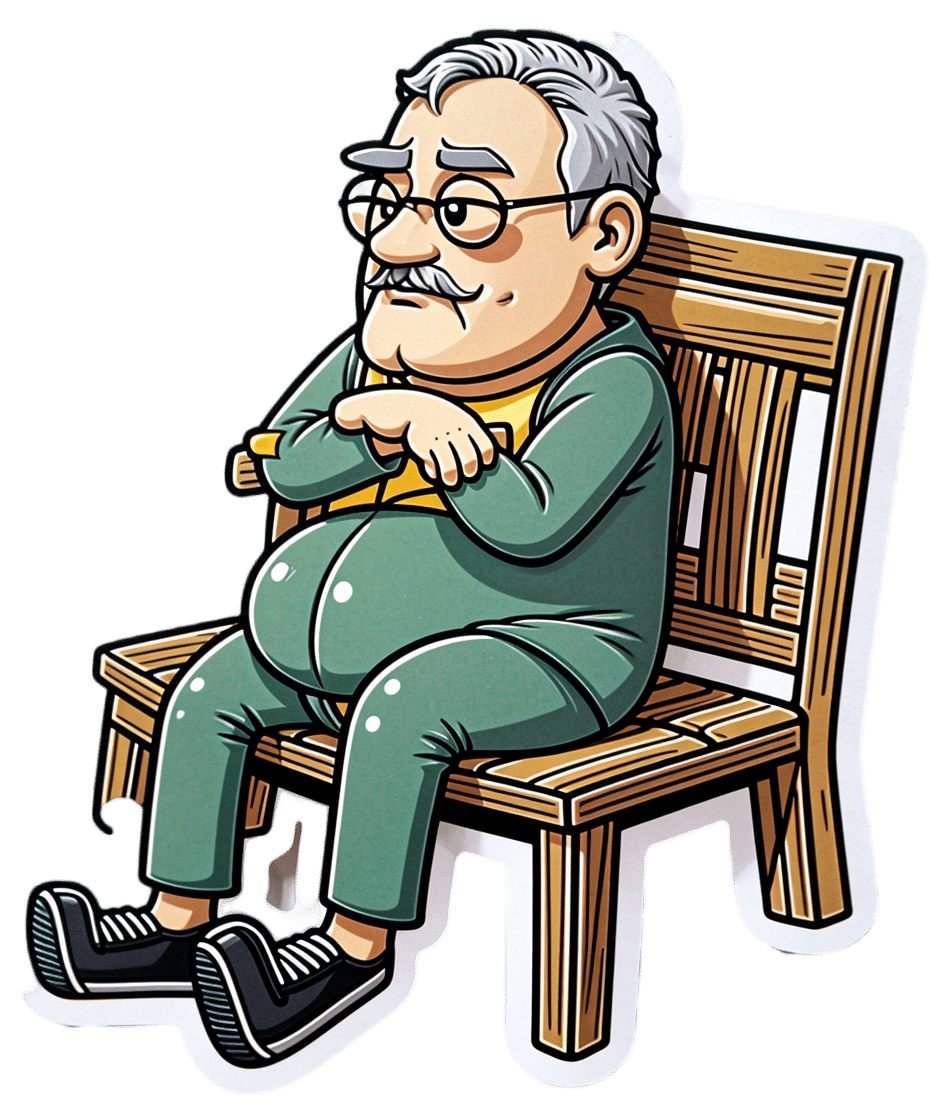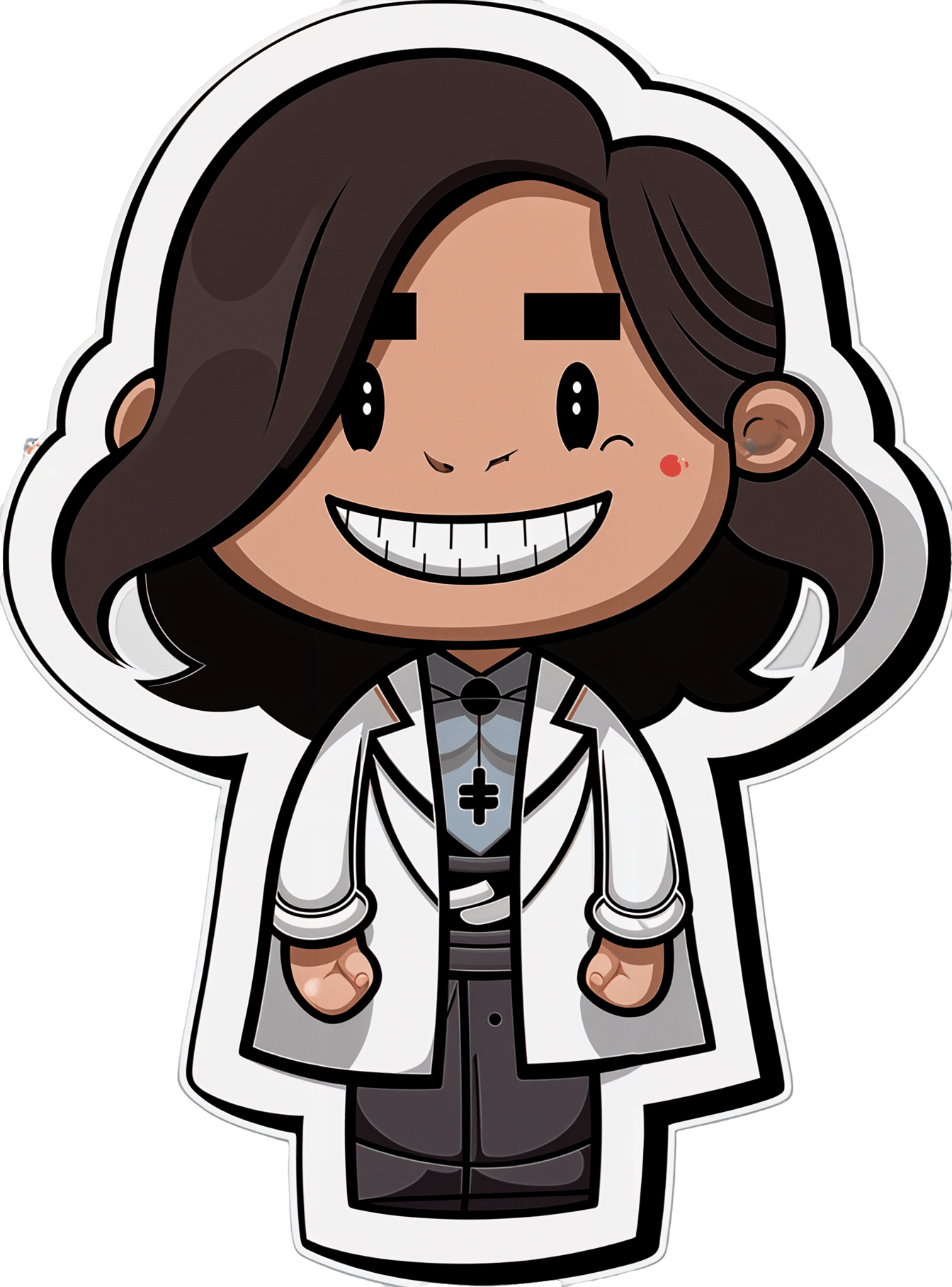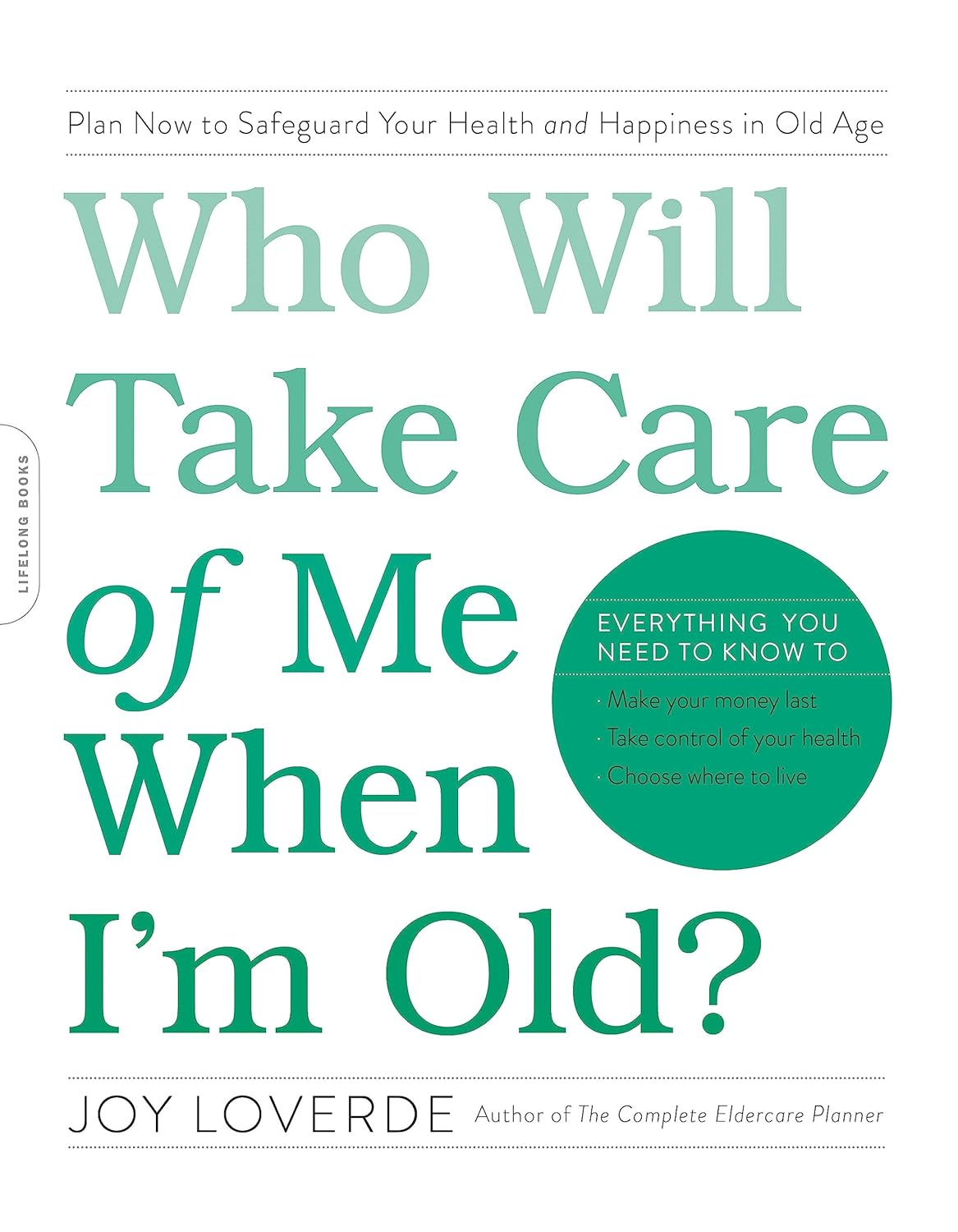
Who Will Take Care of Me When I’m Old? – by Joy Loverde
10almonds is reader-supported. We may, at no cost to you, receive a portion of sales if you purchase a product through a link in this article.
Regular readers of 10almonds will know we’ve written before about how isolation kills (in numerous ways), and this book tackles that in much greater length and depth than we ever have room for here.
Specifically, she talks about preparing for medical and related (financial, living will in case of dementia, housing, etc) considerations down the line, with checklists and worksheets and such to make it easy, and help you make sure it actually gets done.
She also talks about creating a support network, from scratch if necessary (“foraging a family”), so that even if you will now be prepared to handle things alone, you’ll become a lot less likely to need to do so.
Unlike many books of this genre, she also covers managing your mortality; that “just shoot me” is not a plan, and what lessons can be learned from the dying to make our own last years the best they can be.
The style is upbeat and positive in outlook; less “prepare for doom” and more “get ready to do things right”, and it’s worth mentioning that the format is particularly helpful, outlining objectives towards the beginning of each chapter, and additional resources at the end of each chapter.
Over on Amazon, most of the reviews that contain any criticism are some manner of “I’m in my 70s and wish I had read this sooner”. Still, better late than never.
Bottom line: if you do not have an overabundance of support network around you, then this is an important book to read and to put into action.
Don’t Forget…
Did you arrive here from our newsletter? Don’t forget to return to the email to continue learning!
Recommended
Learn to Age Gracefully
Join the 98k+ American women taking control of their health & aging with our 100% free (and fun!) daily emails:
-
Antidepressants: Personalization Is Key!
10almonds is reader-supported. We may, at no cost to you, receive a portion of sales if you purchase a product through a link in this article.
Antidepressants: Personalization Is Key!
Yesterday, we asked you for your opinions on antidepressants, and got the above-depicted, below-described, set of responses:
- Just over half of respondents said “They clearly help people, but should not be undertaken lightly”
- Just over a fifth of respondents said “They may help some people, but the side effects are alarming”
- Just under a sixth of respondents said “They’re a great way to correct an imbalance of neurochemicals”
- Four respondents said “They are no better than placebo, and are more likely to harm”
- Two respondents said “They merely mask the problem, and thus don’t really help”
So what does the science say?
❝They are no better than placebo, and are more likely to harm? True or False?❞
True or False depending on who you are and what you’re taking. Different antidepressants can work on many different systems with different mechanisms of action. This means if and only if you’re not taking the “right” antidepressant for you, then yes, you will get only placebo benefits:
- Placebo Effect in the Treatment of Depression and Anxiety ← randomly assigned antidepressants are, shockingly, luck of the draw in usefulness
- Antidepressants versus placebo in major depression: an overview ← “wow this science is messy”
- Comparative efficacy and acceptability of 21 antidepressant drugs: a systematic review and network meta-analysis ← “oh look, it makes a difference which antidepressant we give to people”
Rather than dismissing antidepressants as worthless, therefore, it is a good idea to find out (by examination or trial and error) what kind of antidepressant you need, if you indeed do need such.
Otherwise it is like getting a flu shot and being surprised when you still catch a cold!
❝They merely mask the problem, and thus don’t really help: True or False?❞
False, categorically.
The problem in depressed people is the depressed mood. This may be influenced by other factors, and antidepressants indeed won’t help directly with those, but they can enable the person to better tackle them (more on this later).
❝They may help some people, but the side-effects are alarming: True or False?❞
True or False depending on more factors than we can cover here.
Side-effects vary from drug to drug and person to person, of course. As does tolerability and acceptability, since to some extent these things are subjective.
One person’s dealbreaker may be another person’s shrugworthy minor inconvenience at most.
❝They’re a great way to correct an imbalance of neurochemicals: True or False?❞
True! Contingently.
That is to say: they’re a great way to correct an imbalance of neurochemicals if and only if your problem is (at least partly) an imbalance of neurochemicals. If it’s not, then your brain can have all the neurotransmitters it needs, and you will still be depressed, because (for example) the other factors* influencing your depression have not changed.
*common examples include low self-esteem, poor physical health, socioeconomic adversity, and ostensibly bleak prospects for the future.
For those for whom the problem is/was partly a neurochemical imbalance and partly other factors, the greatest help the antidepressants give is getting the brain into sufficient working order to be able to tackle those other factors.
Want to know more about the different kinds?
Here’s a helpful side-by-side comparison of common antidepressants, what type they are, and other considerations:
Mind | Comparing Antidepressants
Want a drug-free approach?
You might like our previous main feature:
The Mental Health First-Aid That You’ll Hopefully Never Need
Take care!
Share This Post
-
Happy Mind, Happy Life – by Dr. Rangan Chatterjee
10almonds is reader-supported. We may, at no cost to you, receive a portion of sales if you purchase a product through a link in this article.
Let’s start with a “why”. If happiness doesn’t strike you as a worthwhile goal in and of itself, Dr. Chatterjee discusses the health implications of happiness/unhappiness.
And, yes, including in studies where other factors were controlled for, so he shows how happiness/unhappiness does really have a causal role in health—it’s not just a matter of “breaking news: sick people are less happy”.
The author, a British GP (General Practitioner, the equivalent of what the US calls a “family doctor”) with decades of experience, has found a lot of value in the practice of holistic medicine. For this reason, it’s what he recommends to his patients at work, in his books, his blog, and his regular spot on a popular BBC breakfast show.
The writing style is relaxed and personable, without skimping on information density. Indeed, Dr. Chatterjee offers many pieces of holistic health advice, and dozens of practical exercises to boost your happiness and proof you against adversity.
Because, whatever motivational speakers may say, we can’t purely “think ourselves happy”; sometimes we have real external threats and bad things in life. But, we can still improve our experience of even these things, not to mention suffer less, and get through it in better shape with a smile at the end of it.
Bottom line: if you’d like to be happier and healthier (who wouldn’t?), then this book is a sure-fire way to set you on that path.
Click here to check out Happy Mind, Happy Life and upgrade yours!
Share This Post
-
How Are You, Really?
10almonds is reader-supported. We may, at no cost to you, receive a portion of sales if you purchase a product through a link in this article.
How Are You, Really? The Free NHS Health Test
We took this surprisingly incisive 10-minute test from the UK’s famous National Health Service—the test is part of the “Better Health” programme, a free-to-all (yes, even those from/in other countries) initiative aimed at keeping people healthy enough to have less need of medical attention.
As one person who took the test wrote:
❝I didn’t expect that a government initiative would have me talking about how I need to keep myself going to be there for the people I love, let alone that a rapid-pace multiple-choice test would elicit these responses and give personalized replies in turn, but here we are❞
It goes beyond covering the usual bases, in that it also looks at what’s most important to you, and why, and what might keep you from doing the things you want/need to do for your health, AND how those obstacles can be overcome.
Pretty impressive for a 10-minute test!
Is Your Health Above Average Already? Take the Free 10-minute NHS test now!
How old are you, in your heart?
Poetic answers notwithstanding (this writer sometimes feels so old, and yet also much younger than she is), there’s a biological answer here, too.
Again free for the use of all*, here’s a heart age calculator.
*It is suitable for you if you are aged 30–95, and do not have a known complicating cardiovascular disease.
It will ask you your (UK) postcode; just leave that field blank if you’re not in the UK; it’ll be fine.
How Old Are You, In Your Heart? Take the Free 10-minute NHS test now!
(Neither test requires logging into anything, and they do not ask for your email address. The tests are right there on the page, and they give the answers right there on the page, immediately)
Share This Post
Related Posts
-
Body Sculpting with Kettlebells for Women – by Lorna Kleidman
10almonds is reader-supported. We may, at no cost to you, receive a portion of sales if you purchase a product through a link in this article.
For those of us who are more often lifting groceries or pots and pans than bodybuilding trophies, kettlebells provide a way of training functional strength. This book does (as per the title) offer both sides of things—the body sculpting, and thebody maintenance free from pain and injury.
Kleidman first explains the basics of kettlebell training, and how to get the most from one’s workouts, before discussing what kinds of exercises are best for which benefits, and finally moving on to provide full exercise programs.
The exercise programs themselves are fairly comprehensive without being unduly detailed, and give a week-by-week plan for getting your body to where you want it to be.
The style is fairly personal and relaxed, while keeping things quite clear—the photographs are also clear, though if there’s a weakness here, it’s that we don’t get to see which muscles are being worked in the same as we do when there’s an illustration with a different-colored part to show that.
Bottom line: if you’re looking for an introductory course for kettlebell training that’ll take you from beginner through to the “I now know what I’m doing and can take it from here, thanks” stage.
Click here to check out Body Sculpting With Kettlebells For Women, and get sculpting!
Don’t Forget…
Did you arrive here from our newsletter? Don’t forget to return to the email to continue learning!
Learn to Age Gracefully
Join the 98k+ American women taking control of their health & aging with our 100% free (and fun!) daily emails:
-
How To Kill Laziness
10almonds is reader-supported. We may, at no cost to you, receive a portion of sales if you purchase a product through a link in this article.
Laziness Is A Scooby-Doo Villain.
Which means: to tackle it requires doing a Scooby-Doo unmasking.
You know, when the mystery-solving gang has the “ghost” or “monster” tied to a chair, and they pull the mask off, to reveal that there was no ghost etc, and in fact it was a real estate scammer or somesuch.
Social psychologist Dr. Devon Price wrote about this (not with that metaphor though) in a book we haven’t reviewed yet, but will one of these days:
Laziness Does Not Exist – by Dr. Devon Price (book)
In the meantime, and perhaps more accessibly, he gave a very abridged summary for Medium:
Medium | Laziness Does Not Exist… But unseen barriers do (11mins read)
Speaking of barriers, Medium added a paywall to that (the author did not, in fact, arrange the paywall as Medium claim), so in case you don’t have an account, he kindly made the article free on its own website, here:
Devon Price | Laziness Does Not Exist… But unseen barriers do (same article; no paywall)
He details problems that people get into (ranging from missed deadlines to homelessness), that are easily chalked up to laziness, but in fact, these people are not lazily choosing to suffer, and are usually instead suffering from all manner of unchosen things, ranging from…
- imposter syndrome / performance anxiety,
- perfectionism (which can overlap a lot with the above),
- social anxiety and/or depression (these also can overlap for some people),
- executive dysfunction in the brain, and/or
- just plain weathering “the slings and arrows of outrageous fortune [and] the heartache and the thousand natural shocks that flesh is heir to”, to borrow from Shakespeare, in ways that aren’t always obviously connected—these things can be great or small, it could be a terminal diagnosis of some terrible disease, or it could be a car breakdown, but the ripples spread.
And nor are you, dear reader, choosing to suffer (even if sometimes it appears otherwise)
Unless you’re actually a masochist, at least, in which case, you do you. But for most of us, what can look like laziness or “doing it to oneself” is usually a case of just having one or more of the above-mentioned conditions in place.
Which means…
That grace we just remembered above to give to other people?
Yep, we should give that to ourselves too.
Not as a free pass, but in the same way we (hopefully) would with someone else, and ask: is there some problem I haven’t considered, and is there something that would make this easier?
Here are some tools to get you started:
- Imposter Syndrome (And Why Almost Everyone Has It)
- Perfectionism, And How To Make Yours Work For You
- How To Set Anxiety Aside
- Mental Health First-Aid (To Get Yourself Or A Loved One Through Depression)
- Procrastination, And How To Pay Off The To-Do List Debt
- Take This Two-Minute Executive Dysfunction Test
Take care!
Don’t Forget…
Did you arrive here from our newsletter? Don’t forget to return to the email to continue learning!
Learn to Age Gracefully
Join the 98k+ American women taking control of their health & aging with our 100% free (and fun!) daily emails:
-
International Day of Women and Girls in Science
10almonds is reader-supported. We may, at no cost to you, receive a portion of sales if you purchase a product through a link in this article.
Today is the International Day of Women and Girls in Science, so we’ve got a bunch of content for the ladies out there. Let’s start with the statement Sima Bahous (the Executive Director of UN Women) made:
❝This year, the sixty-seventh session of the Commission on the Status of Women (CSW67) will consider as its priority theme “Innovation and technological change, and education in the digital age for achieving gender equality and the empowerment of all women and girls”.
This is an unprecedented opportunity for the Commission to develop a definitive agenda for progress towards women’s full and equal participation and representation in STEM. Its implementation will require bold, coordinated, multi-stakeholder action.❞
Here at 10almonds, we are just one newsletter, and maybe we can’t change the world (…yet), but we’re all for this!
We’re certainly all in favour of education in the digital age, and more of our subscribers are women and girls than not (highest of fives from your writer today, also a woman—and I do bring most of the sciency content).
Medical News Today asks “Why Are Women Less Likely To Survive Cardiac Arrest Than Men?”
You can read the full article here, but the short version is:
- People (bystanders and EMS professionals alike!) are less likely to intervene to give CPR when the patient is a woman (we appreciate that “your hands on an unknown woman’s chest” is a social taboo, but there’s a time and a place!)
- People trained to give CPR (volunteers or professionals!) are often less confident about how to do so with female anatomy—training is almost entirely on “male” dummies.
A quick take-away from this is: to give effective CPR, you need to be giving two-inch compressions!
On a side note, do you want to learn how to correctly do chest compressions on female anatomy? This short (1:55) video could save a woman’s life!
As a science-based health and productivity newsletter, we make no apologies if occasional issues sometimes have a slant to women’s health! Heaven help us, the bias in science at large is certainly the opposite:
The list of examples is far too long for us to include here, but two that spring immediately to mind are:
- PCOS (Polycystic ovary syndrome), which affects nearly 1 in 5 women, can lead to infertility, never mind the inconvenience of irregular bleeding, chronic pain, and diabetes (amongst other things), and… nobody knows what causes it, or what to do about it.
- Endometriosis (the lining of the womb starts growing in other places), meanwhile, affects around 1 in 10 women. It causes chronic pain and fatigue, and again, nobody knows what causes it or how to cure it.
Maybe if women in STEM weren’t on the receiving end of rampant systemic misogyny, we’d have more women in science, and some answers by now!
❗️NOT-SO-FUN FACT:
Women make up only 28% of the workforce in science, technology, engineering and math (STEM), and men vastly outnumber women majoring in most STEM fields in college. The gender gaps are particularly high in some of the fastest-growing and highest-paid jobs of the future, like computer science and engineering.
Source: AAUW
The US census suggests change is happening, but is a very long way from equality!
WHAT OUR SUBSCRIBERS SAY:
❝Women are slowly gaining more of a place in academia, and slowly making more of a difference when they get there, and start doing research that reflects ourselves. But I still think that it’s a struggle to get there, and it’s a struggle to be heard and be respected.
It’s a matter of pride, it’s a matter of proving yourself, being in STEM, and [women in STEM] still report being extremely disrespected, not taken seriously all, despite being very very good.
It’s worth noting as well, that we’ve had women in STEM for a while and there are so many things we appreciate nowadays that they were a part of, but they were never given credit for—it’s still a problem today and something we need to more actively fight.❞
Isabella F. Lima, Occupational Psychologist
Are you a woman in STEM, and have a story to tell? We’d love to hear it! Just reply to this email 🙂
Don’t Forget…
Did you arrive here from our newsletter? Don’t forget to return to the email to continue learning!
Learn to Age Gracefully
Join the 98k+ American women taking control of their health & aging with our 100% free (and fun!) daily emails:

